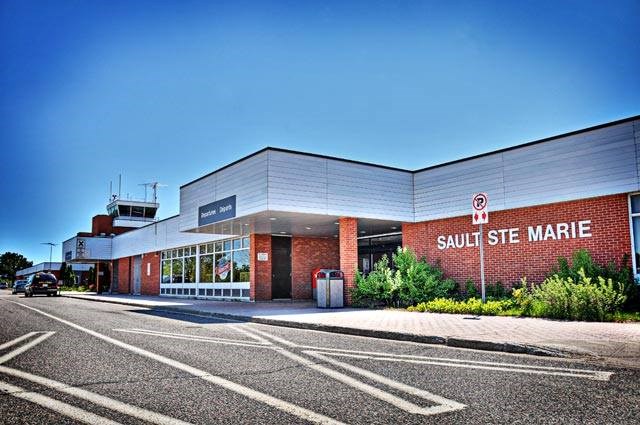A new federal safety regulation calling for ice-free runways will add to the operating costs of Northern Ontario airport operators.
Sault Ste. Marie Airport Development Corp. president-CEO Terry Bos said airport managers are bracing for a slew of new safety-related requirements coming down from Ottawa.
The most onerous is the Global Reporting Format (GRF), which will represent a major change in the way airports address runway surface conditions.
The new reporting format means airports will have use more chemical treatments – such as potassium acetate – to eliminate ice on runways.
Bos said some Northern airports such as Sudbury, North Bay and Thunder Bay already use the chemical. The Sault applies sand and sweeps during the winter, which, he said, has been very effective.
The government's rationale for introducing GRF is that it follows a new harmonized standard under the International Civil Aviation Organization.
The new methodology goes into effect during the winter of 2020-2021, giving the Sault airport management one more winter to prepare.
The Sault airport doesn't rely on any municipal funding. Any adding costs would come out of an increase to users fees charged to airline tickets, and landing and terminal fees charged to the airlines.
"We don't have a large operating budget to increase, so for us to switch from sand to potassium acetate is going to be very costly," said Bos.
He estimates one application of potassium acetate could cost $4,000 for its 6,000-foot main runway, and considerably more if the airport has to open its 6,000-foot crosswind runway.
When new safety regulations come down from Transport Canada, Bos said it’s always difficult to recover the extra costs to implement them since federal funding has been stagnant.
When Ottawa divested itself of most of Canada's airports in the 1990s in favour of private authorities, the Airports Capital Assistance Program (ACAP) was put in place as a funding vehicle for airports handling under 525,000 passengers annually.
It was to be funded by the ground rent charged to larger airports, like Toronto Pearson, and deposited back into the ACAP program. Ground rents are increasing every year but the ACAP funding available for some 200 eligible airports across Canada has remained at $38.5 million since 2000.
"Thirty-eight million doesn't go very far. That's probably enough to do two runways throughout the country in one year," said Bos.
Ottawa has been scooping much of the revenue from ground rent and dumping it back into general reserves, instead of investing in the national airport system.
ACAP funding can’t be used for operational expenses, like deicing chemicals for runways, only for new equipment and infrastructure.
The Sault airport’s applications into ACAP amount to between $15 million and $18 million, including a potassium acetate combo spreader; the replacement of a loader, grader and sweeper; and the resurfacing of its crosswind runway, which is still in its original 1962 state.
While the airport has many fixed costs, Mother Nature can throw them a curve ball. Climate change is very real to Bos, as storms are bigger, more frequent and violent, which can be taxing on the airport’s budget.
A snowstorm that dumps a foot of snow on the facility means burning through 10,000 litres of diesel for a day’s cleanup, not to mention sand applied to the runway, equipment wear and tear, and staff overtime.
Bos said they budget well in preparing for winter storms, "but if we have to get into chemicals, that's a different story," in tacking on an extra $100,000 to $200,000 in additional costs.
As a private, not-for-profit corporation without a pot of money to fall back on, Bos said it’s prompted his colleagues to make their voice heard. Bos is also the treasurer with the Airports Management Council of Ontario.
"That's what you're starting to see, and what we're voicing as a common industry, is that we can't continue to survive with these new regulations and no increase in funding."
The Canadian Airports Council and their affiliated provincial bodies have formed a coalition to lobby the federal government to push for an increase in ACAP funding in this spring's federal budget or the next "for as long as we can," said Bos.
“We're putting together data that's been requested by Transport Canada in order to prove the need for the funding.”
Bos said they've succeeded in raising some awareness among federal agencies, and he has personally impressed upon Sault MP Terry Sheehan to take up the cause.
- Northern Ontario Business
